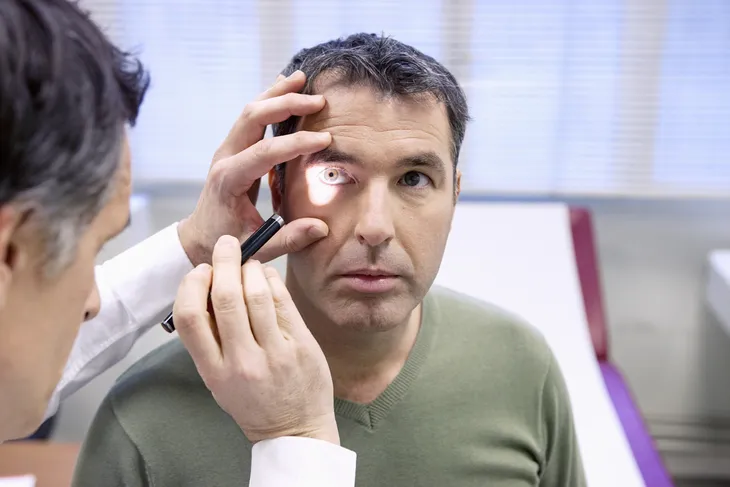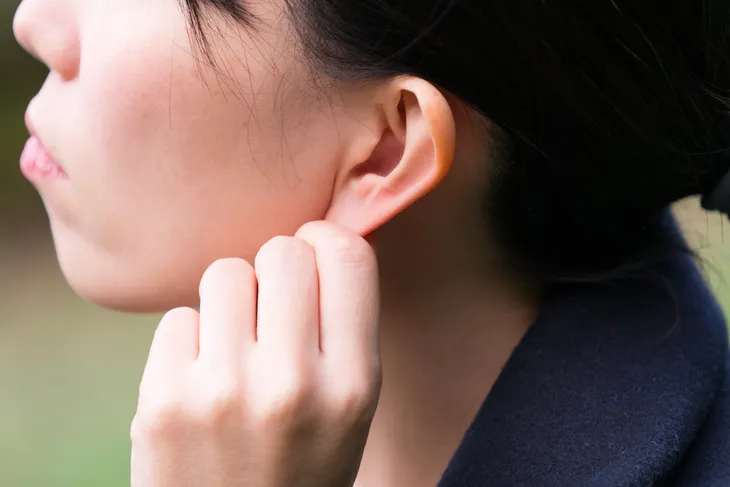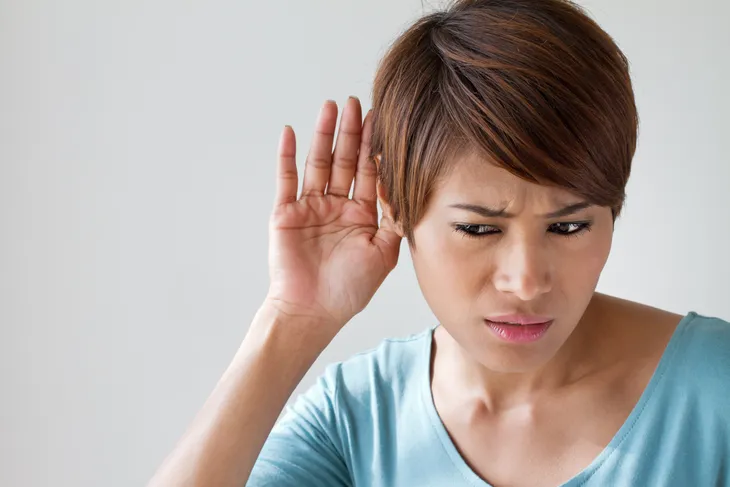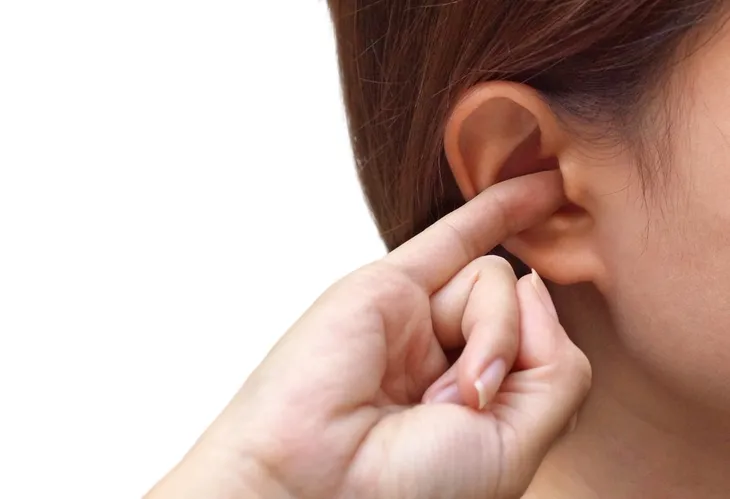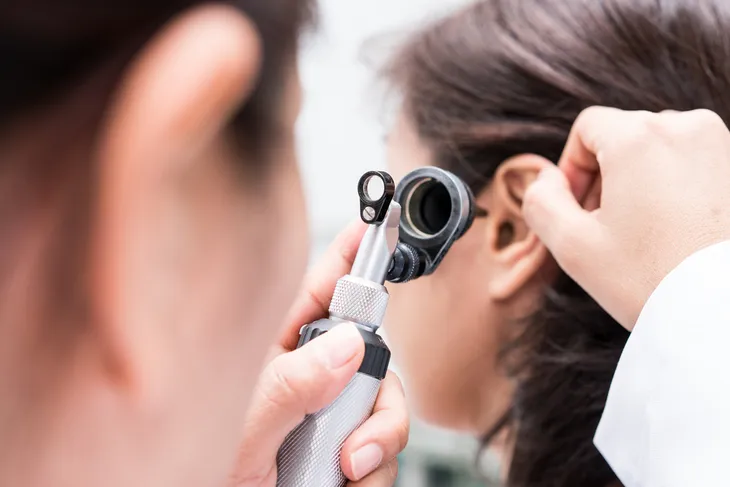Do you find yourself asking others to repeat what they have said? Does this happen not once, but sometimes twice or more? Maybe there’s more to the fact that your spouse has to constantly ask you to turn down the TV. If all this sounds familiar, it could be due to hearing loss.
Many people dismiss hearing loss, especially in young people, but it can happen to anyone and the impact can significantly harm your health. It can also strain your relationships and leave you feeling lonely.
Here’s how to recognize the early signs of hearing loss and take action to protect yourself.
What Causes Hearing Loss?
Three principal types of hearing loss exist. Sometimes, the impairment results from a single identifiable cause. Other times, a mixture of elements play a role.
Sensorineural Hearing Loss
This form of hearing loss occurs from problems within the inner ear. It happens when the nerves or the tiny hairs (stereocilia), become damaged. It impacts the neural pathway through which sound travels from the outside to your brain.
Some principal causes of sensorineural hearing loss include:
- Exposure to loud noises: Listening to headphones with the volume cranked or exposure to environmental noise.
- Head trauma: A blow to the head can damage the nerves, resulting in deafness.
- Temporal arteritis: This condition causes the temple arteries to become inflamed, leading to ringing in your ears and head and neck pain.
- Viral infections: Some hearing loss results from a virus or the high fever that accompanies it.
- Autoimmune disease: Some autoimmune diseases, such as Meniere’s disease, can cause hearing loss.
- Aging: Many older adults suffer some degree of hearing loss with age.
- Tumors: Like any other organ, you can get cancer in your ear, although it is rare.
Conductive Hearing Loss
Conductive hearing loss results from a physical obstruction that prevents sound from traveling through the ear canal properly. Unlike nerve damage, doctors can often correct this form of loss through surgery.
The obstruction can stem from a malformation of the ear canal or benign tumors that don’t impact the nerves. It can also result from fluid in the middle ear, either due to Eustachian tube dysfunction, ear infections, or colds. It may occur due to otosclerosis, a condition in which a bony growth prevents one of the middle ear bones from vibrating with sound.
This type of hearing loss can also happen when earwax or another foreign object becomes lodged in your ear. Wax serves a purpose — it prevents water from entering your ear and damaging it. That’s one reason why you should avoid using Q-Tips to scrape out the substance (known clinically as cerumen). See a physician for professional wax removal if you suspect this cause. Plus, doctors have seen reports of insects getting trapped in people’s ears, so report to your local emergency room (ER) if you feel buzzing or wriggling.
Mixed Hearing Loss
Just as it sounds, this form of hearing loss results from a combination of sensorineural and conductive hearing loss. Only a trip to your doctor can provide a diagnosis and identify the best course of treatment.
Signs of Hearing Loss
Now that you understand the causes of hearing loss, how do you know if it’s time to give your doctor a call? The following signs may tell you and your doctor for sure.
Your Interactions with Others Are Strained:
- How often do you have to ask people to repeat what they’ve already said? If you say, “what” time and again, this is a clear indicator of hearing loss. This problem can occur most profoundly when you’re on the phone, particularly if your transmission is of poor quality. You can try using FaceTime or Skype so that you can see the lips of the speaker, as well as hear their words.
- Additionally, if you have hearing loss, social activities might tucker you out more than the average bear. That’s because you strain to hear the conversation, particularly over the din of other voices in the room. This problem can further isolate you if you already have introverted tendencies, and it can eventually lead to loneliness.
You Ignore Your Phone
Many people today have a Pavlovian response to cell phone alerts — they can’t help but glance to see what is there. However, you may rarely respond to text messages or social media notifications because you don’t hear them. While this may earn you kudos for productivity in the workplace, it can mean missing out on crucial information, especially in a disaster situation.
Additionally, if your next-door neighbor continually knocks on your wall when you’re watching TV, it’s a clear sign that you struggle to hear. You may also get into remote control wars with your spouse or partner, turning up the volume when they leave the room.
Your Eyesight is Struggling, Too
Many don’t know this, but vision loss and hearing loss often go hand-in-hand. Typically, the two come together as comorbid but normal signs of aging. As you age, you may begin to experience vision issues at night, from a distance or in bad weather. Peripheral vision issues are common as well.
If you experience any of these symptoms, you should get both your vision and hearing checked, just to be safe. Vision loss and hearing loss both affect your depth perception and reaction time, meaning activities such as driving may be riskier than they once were.
Your Ears Are Ringing
If you have an infection that comes with the sensation of ringing in your ears (known clinically as tinnitus) or accompanying symptoms such as neck and jaw pain, you should see your doctor right away, particularly if you’re over 50 years of age. These symptoms could indicate temporal arteritis. Diagnosing this condition and treating it early could potentially halt the situation from becoming permanent.
You Struggle With Background Noise
When you have hearing loss, being in a crowd can sound akin to turning on 10 radios and trying to pay attention to only one. That’s because the neurons of the inner ear must work harder. After all, not all of them function as intended any longer. Think of it like your nerves trying to multitask, something that experts agree doesn’t work well.
You Can’t Hear Children, Women or Even Birds
You might find it more challenging to hear the voices of women and children compared to those in men, depending on the type of hearing loss you experience. That’s because men’s voices typically fall into a lower pitch, and, as you age, your ability to hear higher frequencies diminishes.
Alongside this, if you can no longer hear the chirps of birds and crickets, consider it a cause for alarm. You may merely live in a noise-polluted urban environment. Yet, if you reside in the country, or you have other symptoms, get checked out by a doctor.
You Feel Like Your Ears Are Clogged
If you have conductive hearing loss, you may feel as if your ears are stopped up or clogged. While you may want to remove the offending object by yourself, it’s best to see a physician for treatment. Using a Q-Tip or even your finger can result in pushing wax or foreign objects further into the canal where they become lodged. This condition may require surgical correction to treat.
You Work in a High-Noise Industry
Some industries, such as the machinery and construction trades, entail a higher level of on-the-job noise. In general, if you have to raise your voice to speak to someone 3-feet away, your environment is likely louder than 85-decibels. While the Occupational Safety and Health Administration (OSHA) enacts strict guidelines on hearing protection in the workplace, it’s best to remain aware — after all, even cubicle dwellers can become distracted by a jackhammer outside their window.
You Feel Lonely
Loneliness remains a significant issue among older adults, and hearing loss is one cause. You might avoid phoning family and friends due to challenges in understanding them. You may begin missing social activities you once enjoyed, such as attending church services or volunteering.
You Lose Your Ability to Focus
Because you struggle to understand, you might find your ability to concentrate starting to lag. Human beings can only maintain attention for a limited time. If you’re using all your energy trying to understand spoken directions, your mind could start wandering once you get down to the task at hand. This distraction can lead to problems in the workplace.
In an attempt to hear more clearly, you may also find yourself spending more time looking at people’s lips than their eyes. While this can increase understanding, you may tire yourself out using this method.
Correcting Hearing Loss
The most apparent clue that you have hearing loss is that you feel yourself struggling to hear on a routine basis. If your issues with sound bother you, make an appointment with your doctor.
At your visit, your doctor will perform tests to determine the underlying cause of your hearing loss. They may recommend the following treatments:
- Removing wax or impacted objects: If you see your physician early, they can often do this in-office without the need for surgery. Don’t try to remove impacted objects independently — you lack the tools to see inside your ear.
- Surgical procedures: If a structural defect created the hearing loss, your doctor might be able to correct it through surgery. They may also insert tubes to drain fluid.
- Hearing aids: If your hearing loss stems from sensorineural causes, a hearing aid can restore lost function. Unfortunately, Medicare does not currently cover these devices, and they can cost quite a bit.
- Cochlear implants: If you have severe hearing loss, your doctor can discuss the potential risks and benefits of this procedure.
If you recognize the signs of hearing loss in yourself, get to your doctor as soon as possible. You can restore much of your quality of life with proper treatment.





